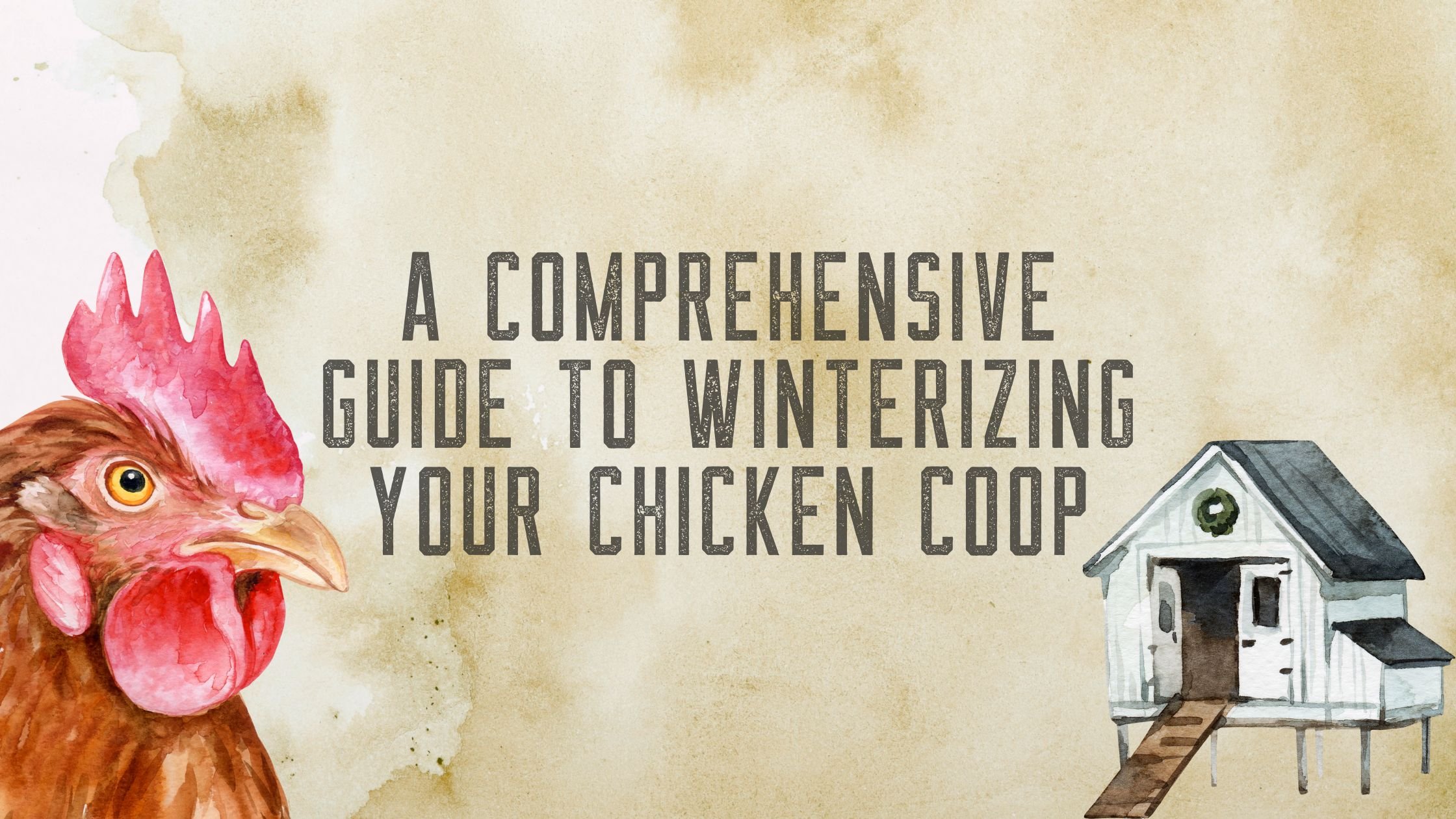A Comprehensive Guide to Winterizing Your Chicken Coop: Ensuring Comfort and Well-being for Your Flock
As winter approaches, poultry keepers must take proactive steps to prepare their chicken coops for the colder months. A well-prepared coop not only safeguards your feathered friends from the harsh elements but also contributes to their overall health and productivity. This comprehensive guide will delve into eleven crucial tips for getting your chicken coop winter-ready. Two key things to remember.
Across the United States there are vast differences and weather, so some of this may be needed for you, but maybe not. Use your brain and be thoughtful.
Chickens are resilient, so don't over do it. They don't need a gas heater in the coop, they just don't!
Check for Drafts:
The first step in winterizing your chicken coop is to thoroughly inspect drafts and vulnerabilities that may compromise the interior temperature. Inspect the walls, windows, and doors for any gaps or cracks that could let in cold air. Seal these openings with weatherstripping, caulk, or additional insulation to create a snug and warm environment for your chickens.
Insulate Walls and Ceiling:
Effective insulation is key to retaining heat within the coop during winter. Consider adding insulation to the walls and ceiling using materials such as fiberglass or foam board insulation. Ensure that the insulation is covered with plywood or a similar protective layer to prevent your chickens from pecking at it. Proper insulation not only keeps the coop warm but also helps in energy efficiency.
Ventilation:
While insulation is crucial, maintaining proper ventilation is equally important. Good ventilation prevents moisture buildup, which can lead to respiratory issues in chickens. Install adjustable vents that can be closed during frigid days to strike a balance between warmth and fresh airflow.
Deep Bedding:
Increasing the depth of bedding in the coop provides an additional layer of insulation and warmth for your chickens. Materials like straw or hay are excellent choices for bedding. Regularly clean and replace the bedding to ensure cleanliness and warmth throughout the winter months.
Heated Water Source:
Investing in a heated waterer is essential to ensure that your chickens have access to liquid water even in freezing temperatures. This prevents water from freezing, ensuring your chickens stay adequately hydrated during the winter.
Roosts:
Evaluate the roosts in your coop to ensure they are wide enough for your chickens to sit comfortably, with their feathers covering their feet. This natural behavior helps them conserve body heat by tucking their feet under their bodies while roosting.
Secure Doors and Windows:
A secure coop is vital for protecting your flock from both the cold and potential predators. Regularly check and maintain all doors and windows, tighten hinges, replace damaged parts, and ensure that locks are in working order. This helps keep the coop well-sealed and provides an added layer of security for your chickens.
Keep the Party Going:
As winter rolls in and the days get shorter, it's time to bring some extra cheer to your coop! Forget about just providing adequate lighting; let's keep the party vibes alive. Your chickens might not need a disco ball, but they do need a balanced, nutritious, and fun diet to keep the energy levels up and the good times rolling. Think of it as a winter feast for your feathered friends – a menu that supports their health, boosts egg production, and keeps the coop rocking. After all, a happy chicken is a party chicken!
Ensuring Protein Intake:
Winter can be challenging for chickens, as cold temperatures increase their energy requirements. To support their health and well-being, provide a well-balanced and nutrient-rich diet. Consider increasing their protein intake through feeds that are specifically formulated for winter months. Supplementing their diet with grains and seeds can also provide extra energy to help them stay warm. Regularly assess their body condition and adjust their diet accordingly. Adequate nutrition plays a pivotal role in maintaining the overall health of your flock during the winter season.
Check Electrical Systems:
A thorough inspection of the electrical systems is crucial for those using heat lamps or other electrical heating devices. Ensure all wiring is in good condition, with no exposed or damaged parts. Check for fire hazards and follow safety guidelines when using electrical equipment in or around the coop. Regular maintenance of these systems is essential to prevent potential risks and ensure the safety of your flock.
Stock Up on Supplies:
Winter weather can make traveling and obtaining supplies challenging, so it's wise to stock up in advance. Ensure you have an ample supply of feed, bedding, and other essentials to last throughout the winter. This proactive approach ensures your chickens' well-being and minimizes the need for frequent trips to the store in adverse weather conditions.
Properly winterizing your chicken coop is a multifaceted task involving insulation, ventilation, nutrition, and overall coop maintenance. By following these ten tips, you can create a cozy and secure environment for your feathered friends, ensuring their well-being throughout the winter months. Regular monitoring and proactive adjustments based on the specific conditions in your region are key to a successful winterization strategy. Remember, a well-prepared coop contributes to the comfort of your chickens and their productivity and overall happiness.




